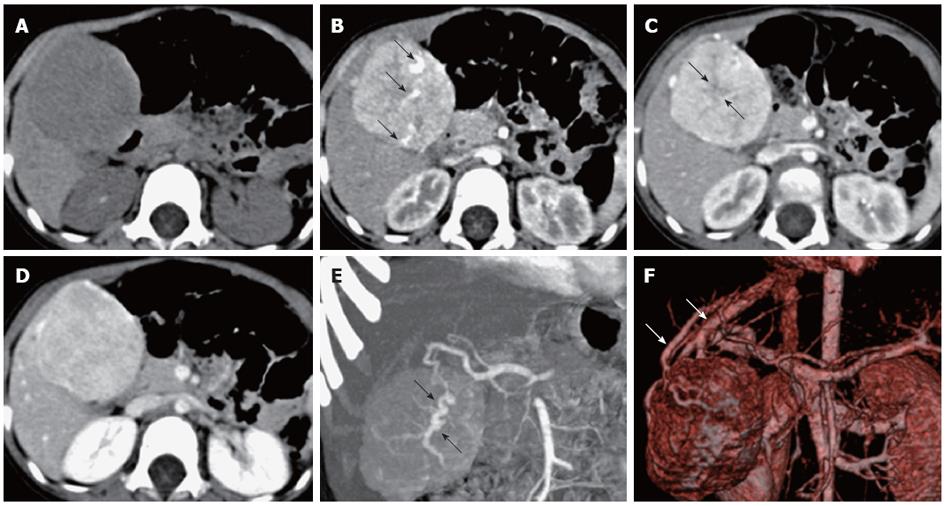Copyright
©2012 Baishideng Publishing Group Co.
World J Gastroenterol. Dec 21, 2012; 18(47): 7048-7055
Published online Dec 21, 2012. doi: 10.3748/wjg.v18.i47.7048
Published online Dec 21, 2012. doi: 10.3748/wjg.v18.i47.7048
Figure 1 Focal nodular hyperplasia in a 2-year-old boy.
A: The lesion was hypodense on pre-contrast computed tomography scan; B: The lesion was significantly enhanced in the arterial phase with enlarged feeding arteries (arrows); C: The lesion was hyperdense in the portal vein phase with hypodense central scar (arrows) and fibrous septa; D: The lesion was isodense in the equilibrium phase, and the scar shows delayed enhanced; E: Computed tomography angiography (CTA) in the arterial phase showed that the enlarged feeding artery was distorted with a spoke-wheel shaped blood supply (arrows); F: CTA in the portal vein phase showed the draining vessels directly into the hepatic vein (arrows).
- Citation: Liu QY, Zhang WD, Lai DM, Ou-yang Y, Gao M, Lin XF. Hepatic focal nodular hyperplasia in children: Imaging features on multi-slice computed tomography. World J Gastroenterol 2012; 18(47): 7048-7055
- URL: https://www.wjgnet.com/1007-9327/full/v18/i47/7048.htm
- DOI: https://dx.doi.org/10.3748/wjg.v18.i47.7048









